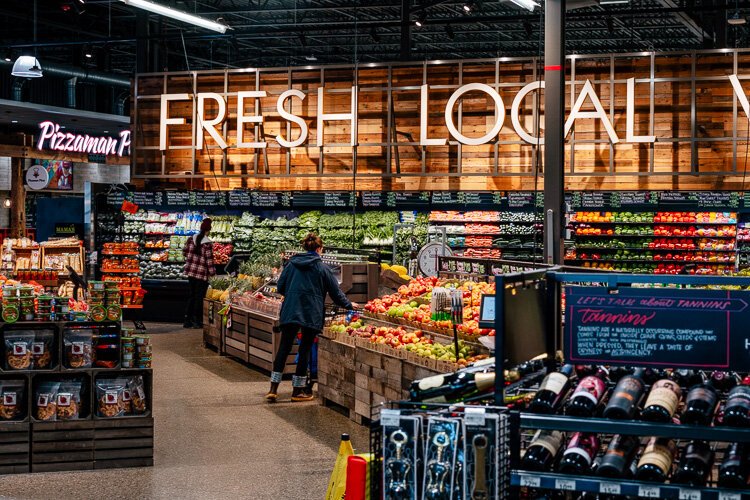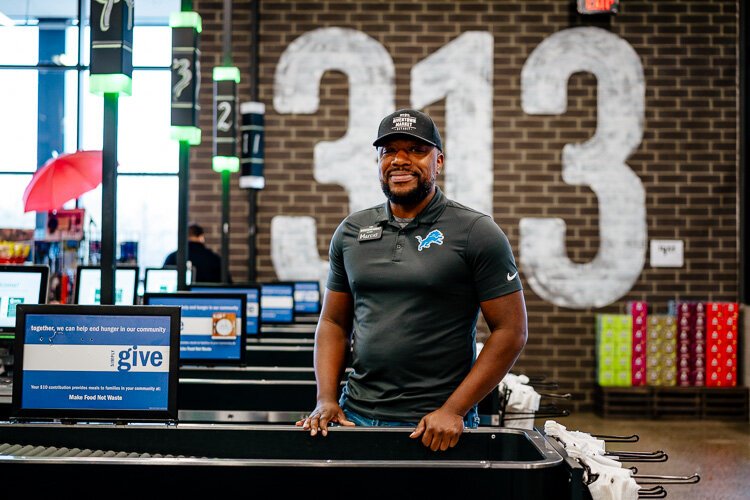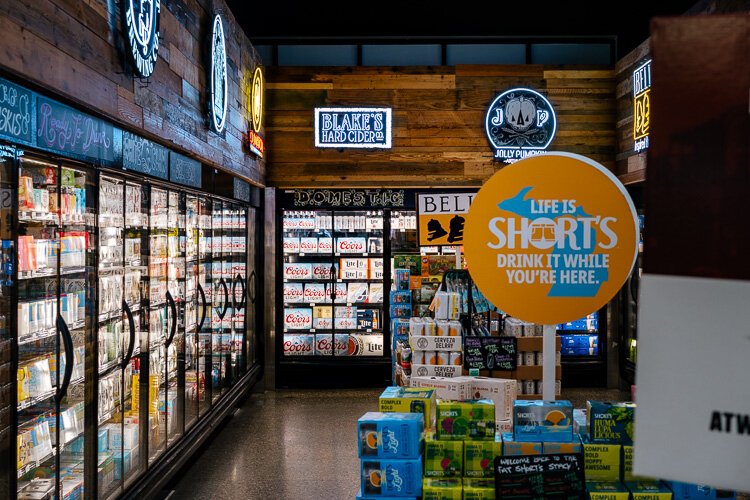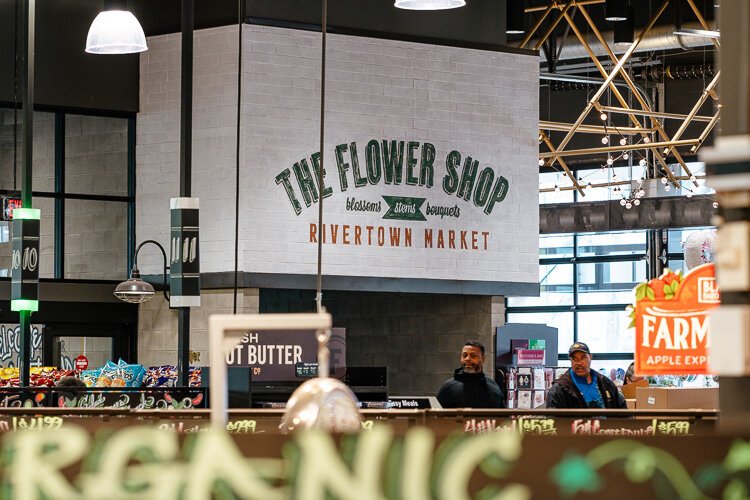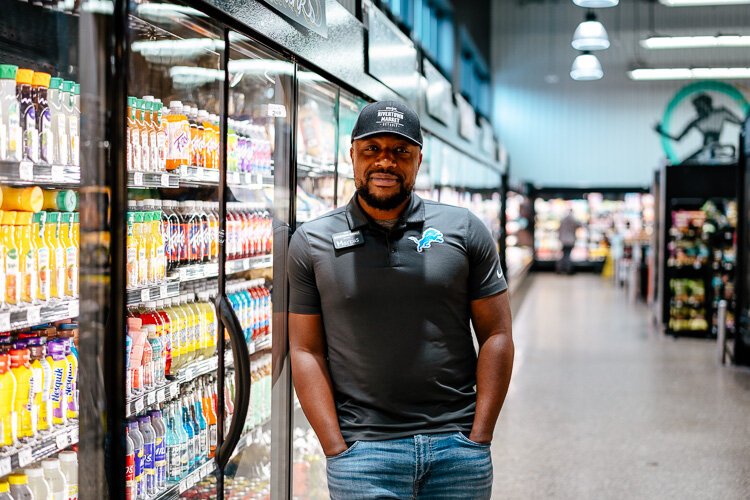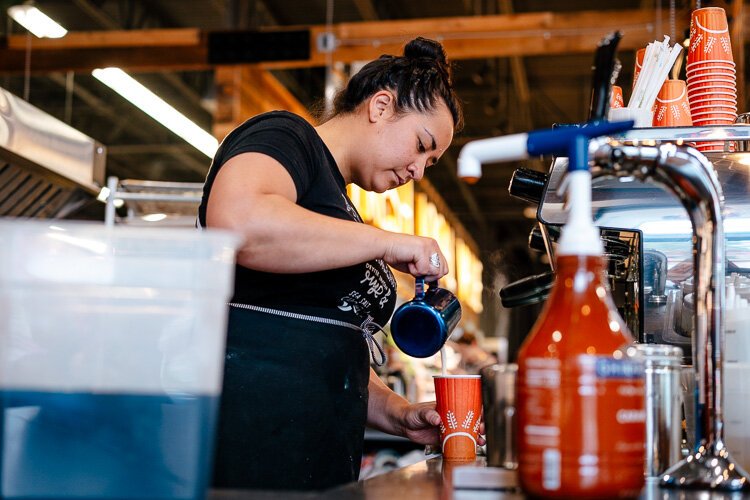Partner Partner Content This riverfront Detroit market became a reality thanks to an innovative community investment program
Detroit's new neighborhood-style Meijer grocery got off the ground with the help of a special initiative aimed at encouraging economic development in low-to-moderate income communities.
For Detroit resident Regina Lawson, shopping at Meijer’s Rivertown Market has become a weekly routine.
The 74-year-old retiree, who hosts herbal-themed walking tours along the downtown RiverWalk, lives at the Thome Rivertown Senior Apartments, just a short way from the Jefferson Avenue marketplace. Lawson, who’s also known in the community as “Mama Ravin”, now stops there each Thursday to pick up groceries for the week.
“I think it’s really nice,” says Lawson. “Every Thursday is Senior Day. We get discounts and people help bag up our groceries at the register and stuff like that. We needed a store like that that was more economical.”
Located at 1475 E Jefferson Ave., Rivertown Market opened in 2021 with the support of the Federal Home Loan Bank of Indianapolis (FHLBank Indianapolis), which offered a special low-interest loan to the project’s developer as part of its Community Investment Program (CIP). It is one of Meijer’s newer, smaller-format, neighborhood-style grocery stores. These stores are grocery-only and are aimed at bringing fresh, affordable, and local products to people in their respective communities.
While there are other markets along the East Jefferson corridor, Chip Rohde, President of the Rivertown Detroit Association, feels Meijer’s decision to open Rivertown Market has been a win for the community.
“They have brought to the neighborhood a major marketplace and have reached out to local producers,” he says. “And they offer a lot of additional alternatives and products, lower prices, and they’re open long hours, which is really good for the neighborhood.”
The 42,000 square foot Rivertown Market facility is about a third of the size of a typical Meijer supercenter, according to market director Marcus Reliford, which helps it to focus on its mission of being a neighborhood market.
“The store offers a unique shopping experience and a vast assortment of fresh and prepared foods, including bakery items, fresh meat, and deli offerings,” Reliford says. “The store [also] contains an Avalon International Breads offering bakery and cafe items, as well as basic cleaning products and health and beauty care. Customers will find low prices every day on thousands of staple items, unique local and specialty products, and friendly service.”
Rivertown Market offers a mix of Meijer and national brand products, as well as around 2,000 locally made artisan items, including products from Black-owned businesses like Pizzaman Pizza, Washington’s Gourmet Cheesecakes, GLAM, and For Heaven’s Cakes. In addition to these goods, the market is also open to accommodating customer requests for other local products.
When it launched in 2021, Rivertown Market was Meijer’s fourth smaller-style market to open. Meijer selected the East Jefferson corridor, because it felt the area was a good fit for its new neighborhood market concept.
“We saw an opportunity to help fill a void in the community by providing high-quality grocery items in a convenient location at a good value, while also supporting local businesses and providing jobs right here in Detroit,” says Reliford.
A 2015 report by The Hudson-Webber Foundation estimated the per capita yearly income of Detroit’s greater downtown — a 7.2-square-mile area with a population of around 35,000 people that includes the neighborhoods of Downtown Detroit, Midtown, Woodbridge, Eastern Market, Lafayette Park, Rivertown, and Corktown — to be just $20,216. Since that time, Rivertown has seen an influx of new higher income residents. But the presence of Thome Rivertown Senior Apartments, the affordable assisted living complex where Lawson lives, indicates that there are still many residents in the neighborhood who benefit substantially from the market’s competitive prices.
That’s very much keeping in the spirit of FHLBank Indianapolis’ CIP program, which offers financial support to affordable housing projects and business development efforts that provide goods and services to residents in areas like Rivertown.
“Especially these days with the higher cost of development, these kinds of developers need to keep costs down,” says Rori Chaney, Community Investment Department Manager for FHLBank Indianapolis. “This is one element that can help them do that and hopefully encourage them to open up a shop or other project in areas that need it.”
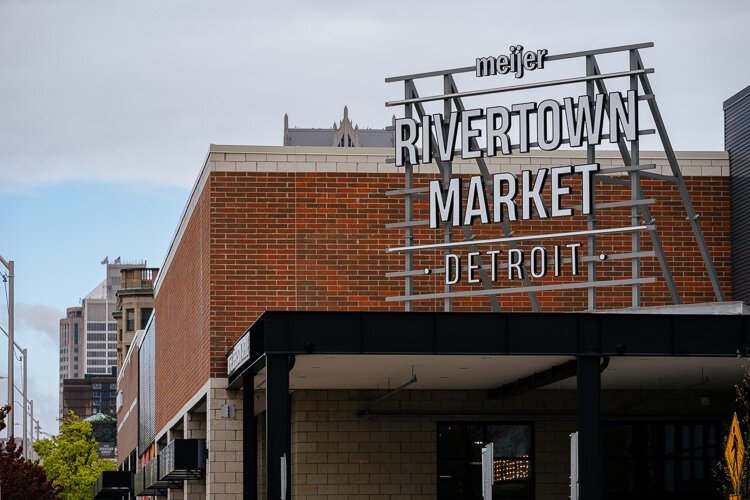
Bringing the market to Rivertown
Rivertown Market’s development was handled by Rockford Construction, a longtime partner on Meijer projects with years of experience working on real estate, construction, and property management endeavors.
Developer Mike Mraz calls the neighborhood market “an incredible project” that his company is “proud to be able to be part of.” Working on the market, however, was not without challenges.
The pandemic has been a turbulent time for developers, who have had to deal with rising labor and material costs as well as economic uncertainty.
“It was happening in the heart of COVID, so it was an interesting time to do a real estate development deal,” says Mraz. “But we were able to work with all of our partners and help deliver quality low-cost food to the neighborhood.”
Fortunately, one of those partners was Mercantile Bank of Michigan, with whom Rockford Construction had already worked together many times in the past.
As a member institution of FHLBank Indianapolis, Mercantile Bank was able to secure a special fixed-rate loan through the CIP initiative. The program allows FHLBank Indianapolis to loan money to its member institutions at the lowest rates possible for the purpose of supporting local economic development to benefit low-and moderate-income households and neighborhoods. In 2021, Federal Home Loan banks across the country funded roughly $1.7 billion in targeted housing and economic development advances through the CIP initiative.
The program is typically used to support affordable housing developments, commercial economic development, and mixed-use developments. CIP funds can be used for pre-development, gap financing, or even to cover the entire cost of a project. While there is a cap on how much can be borrowed each year by member institutions, the program does offer them a competitive advantage in certain situations like when several banks may be bidding to offer loans for a project.
Applying for CIP funding is fairly simple but takes place only at the discretion of a member institution like Mercantile Bank. To qualify, the development project must meet at least one of a series of criteria aimed at supporting low-and moderate-income households and neighborhoods.
Katie Golomb is the Mercantile Bank lender who helped secure the loan for Rockford Construction to develop Rivertown Market.
“FHLB made it really easy for us,” she says. “We worked directly with their team to determine: ‘Is it a good fit for this program?’ Then we worked together to ensure the advance we received matched the financing. And once we had all our paperwork in order, we were able to lock the rate in really quickly, which was really important for everyone involved.”
Mraz is certainly satisfied with how things turned out. Being able to secure a fixed-rate loan gave him the confidence he needed to sign a long-term lease with Meijer during a time when interest rates have been very unpredictable.
“Mercantile is phenomenal,” says Mraz. “They came up with this creative opportunity for financing. And what really benefited us as an investor is that we were able to procure long-term fixed-rate debt, and having that hedge against interest rate risk was really important to us as we were looking at this investment.”
As for the Mercantile Bank, the institution is committed to strengthening the communities it serves, and FHLBank Indianapolis’ Community Investment Program helps them with that goal.
“We need developments that are important to the community,” says Golomb. “Our relationship with FHLBank Indianapolis is really important in a lot of different aspects. They offer opportunities as a bank to help developers of a project and members of communities meet critical needs like affordable housing and, in this case, access to healthy foods.”
All photos by Nick Hagen.
This article is connected to the Block by Block series, supported by FHLBank Indianapolis, that follows minority-driven development and affordable housing issues in Detroit.
